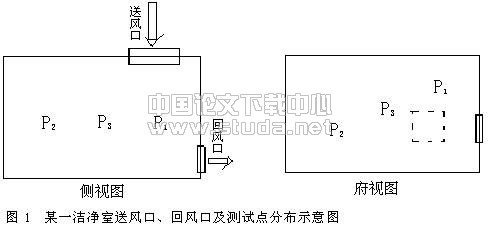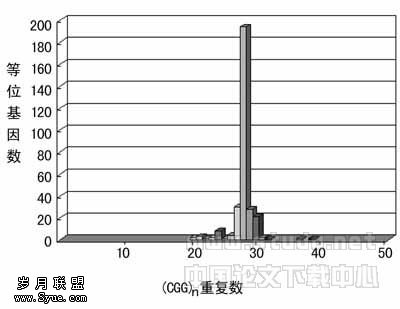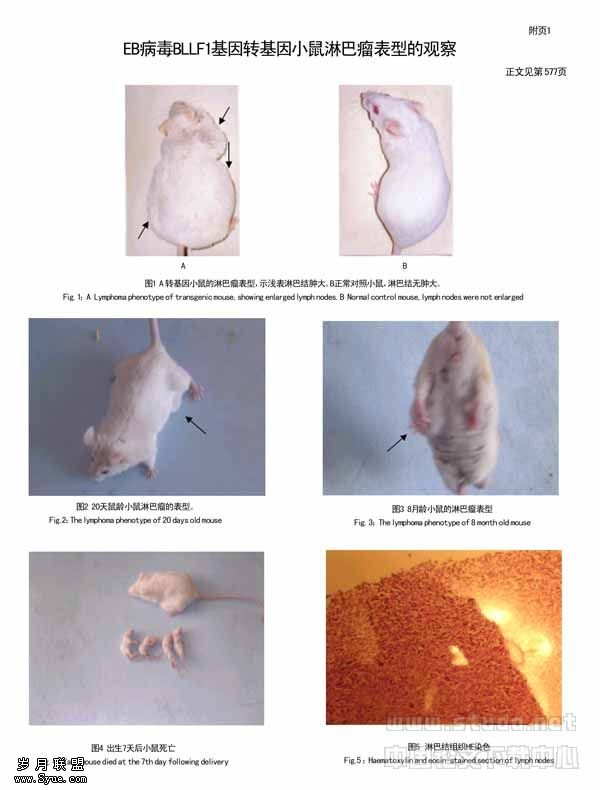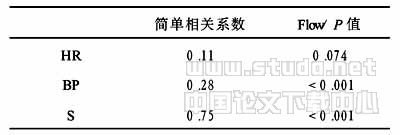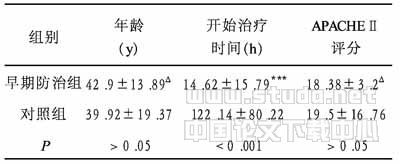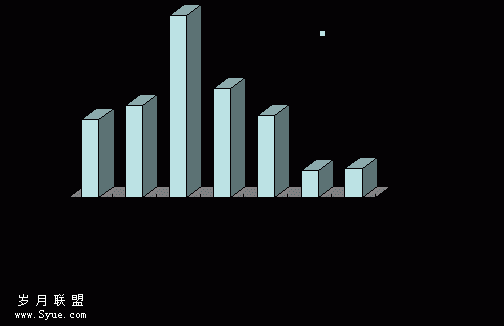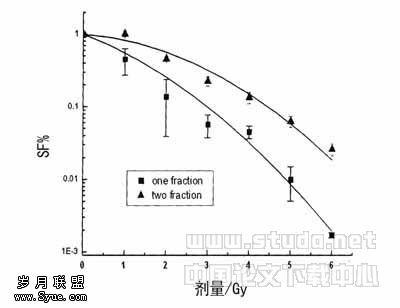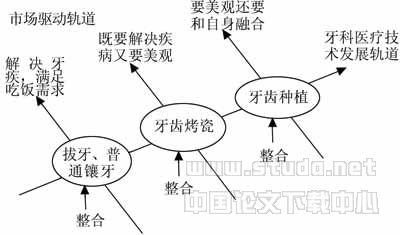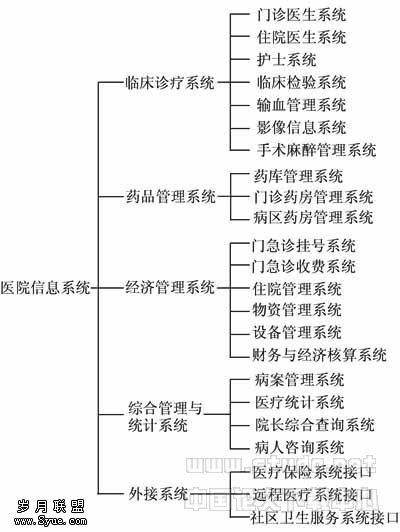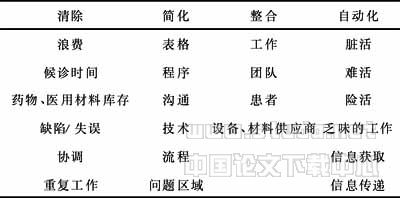Postoperative Chemotherapy for Gastric Cancer
作者:Michael Hejnaa, Stefan Wöhrerb, Manuela Schmidingera, Markus Raderera,b
【关键词】 ,Gastric,cancer,•,Adjuvant,treatment,•,Chemotherapy,•,Review
LEARNING OBJECTIVES
After completing this course, the reader will be able to:
Identify the current standard of care and new chemotherapy options for patients with resected gastric cancer.
Discuss recently reported results of phase II and phase III randomized trials of chemotherapy for the postoperative treatment of gastric cancer.
Discuss the clinical implications of recent clinical trial findings and future treatment strategies.
ABSTRACT
Introduction. Adjuvant chemotherapy for gastric cancer after potentially curative surgery has been under clinical investigation for more than four decades. However, potentially curative resection can be performed in only 30%50% of patients. The objective of this article is to review briefly the clinical trials available in the current literature using adjuvant cytotoxic chemotherapy in patients with gastric cancer after potentially curative surgical resection.
Methods. Computerized (MEDLINE) and manual searches were performed to identify papers published on this topic between 1965 and 2005. Only articles with an English abstract were reviewed for inclusion; information abstracted included histologic proof of diagnosis, number of patients, dose and modality of treatment, survival duration, and side effects.
Results. Forty-three reports were identified. Single-agent chemotherapy was evaluated in four clinical trials, and postoperative combination chemotherapy was evaluated in 33 trials. Furthermore, we identified five meta-analyses. Five-year survival rates ranged from 12%91.2%, and the median survival durations were 1360+ months. Adjuvant chemotherapy, when compared with surgery alone, seems to result in longer survival.
Conclusion. The high rate of recurrence, even in patients undergoing state-of-the art curative resection, suggests that effective adjuvant chemotherapy might indeed be an attractive concept to improve the overall outcome of patients with gastric cancer. However, because there is no standard regimen for postoperative treatment at the moment, patients with R0-resected (no residual tumors) gastric cancer should be offered the opportunity to participate in prospective clinical trials.
BACKGROUND
Surgical resection remains the mainstay of curative treatment for patients with gastric cancer. However, curative surgery can be performed in only a relatively small subgroup of patients. Several recent large surgical series indicate that only 30%50% of patients with gastric cancer undergoing exploration can be operated with curative intent. Even for those patients who undergo radical resection, the rate of recurrence is very high.
It has been suggested that the presentation (and even the biology) of gastric cancer may be different between the West and other countries, especially Japan. While the reason for the differences are not completely clear, this might be a result of the fact that the incidence of gastric cancer is several times higher in Japan. In addition, more stringent screening programs are emphasized in Japan, resulting in a potential difference in baseline conditions of cancer patients. Furthermore, specific surgical techniques are used in Japan, and Japanese surgeons have probably acquired additional experience in the surgical approach to gastric cancer. Taken together, these facts might lead to difficulties in comparing the results of surgery or postoperative treatment programs between the Western world and Japan.
The use of (additional) systemic therapy early in the treatment plan appears to be an attractive concept in a disease with a high propensity for systemic failure and/or local recurrence. To potentially increase the rate of cure after surgery for gastric cancer, adjuvant chemotherapy is receiving increasing attention, particularly in the light of evidence of a benefit from such therapies in common tumors of the gastrointestinal tract, such as colorectal cancer. Adjuvant chemotherapy for gastric cancer, however, has been investigated for more than 40 years, but no obvious survival benefit has been shown in any large-scale well-controlled trial until recently.
METHODS
Using computerized (MEDLINE) and manual searches, we identified 43 reports of adjuvant chemotherapy performed in patients after potentially curative resection. Only papers with an English abstract were included, and no effort was made to search for unpublished trials, thus a slight amount of publication bias cannot be excluded. Chemotherapy was defined as a cytotoxic drug or drug combination, distinct from immunotherapy and radiotherapy. Combinations of chemotherapy with immunotherapy and/or radiotherapy were not included. Information abstracted included histologic verification of the diagnosis, adjuvant treatment regimen and dose of cytotoxic agents, number of patients, and overall survival. We identified four single-agent and 33 combination chemotherapy trials and five meta-analyses.
RESULTS
Table 1 summarizes the results of a number of controlled and prospective random-assignment trials of postoperative chemotherapy in gastric cancer.
Some of these studies date back to the early 1960s, and two of the first trials in this field were done by the Veterans Administration Surgical Oncology Group, who investigated the use of thiotepa (Thioplex®; Immunex Corporation, Seattle) or 5-fluorodeoxyuridine (FUdR) after surgical resection [1, 2]. Both showed negative results in terms of survival.
Nitrosourea-Containing Regimens After initial promising results of the combination of 5-fluorouracil (5-FU) and nitrosourea after gastric resection [3], additional studies could not demonstrate a significant disease-free or overall survival advantage for this combination compared with no treatment [46]. The largest study included 103 patients randomly assigned to either a control or chemotherapy group (5-FU plus carmustine [BCNU®; Bristol-Myers Squibb, Princeton, NJ]) after stratification according to tumor stage II and III and showed no advantage in terms of recurrence or survival time after a follow-up period of 3 years [6].
Mitomycin-Containing Regimens
A series of trials have involved the use of mitomycin C (MMC; Mutamycin®; Bristol-Myers Squibb) (Table 1). A Spanish trial investigated the use of single-agent, high-dose MMC following surgical resection [7]. In that study, only 33 patients received chemotherapy (MMC, 20 mg/m2 once every 6 weeks for four doses), while 37 patients constituted the control group. A significant survival advantage (seven relapses in the treated arm, 23 in the control arm; p < .001) for the chemotherapy group was noted [7]. Consequently, Grau et al. performed a randomized trial on 134 patients using the same regimen [8]. After a median follow-up of 105 months, the actuarial survival curve was significantly (p < .025) higher in the treatment group.
Allum and coworkers investigated 411 patients in a prospective, randomized trial using a more complex polychemotherapy regimen [9]. After a follow-up of at least 5.5 years there has been no survival advantage for patients receiving adjuvant 5-FU and MMC with or without an induction course of 5-FU, vincristine (Oncovin®; Eli Lilly and Company, Indianapolis), cyclophosphamide, and methotrexate compared with those undergoing surgery only. Chemotherapy was not tolerated well and toxicities were substantial, resulting in 22 treatment-related deaths.
To determine whether postoperative adjuvant chemotherapy with two drugs versus one drug could prolong survival, Grau et al. investigated 85 patients with completely resected locally advanced gastric cancer in a randomized trial [10]. Patients received MMC either alone or in combination with ftorafur (FT). After a median follow-up duration of 62 months, the overall 5-year survival rates were 67% for the MMCFT group versus 44% for the MMC group (p = .04). This survival advantage was even more pronounced in patients with node-negative and early-stage resected gastric cancer.
The combination of MMC and tegafur also showed a significant survival advantage compared with no treatment in a randomized controlled trial after a median follow-up period of 37 months [11]. This combination was excellently tolerated, and it was concluded that there was a potential benefit from adjuvant chemotherapy in resected gastric cancer.
In contrast to these results, the combination of 5-FU, epirubicin (Ellence®; Pfizer Pharmaceuticals, New York), and MMC (FEM) showed no survival advantage over observation only in a randomized study of 84 patients [12].
Nakajima’s group treated 243 patients who received either MMC, 5-FU, and cytosine arabinoside or a similar regimen in which 5-FU was replaced by FT, with the control group having surgery only [13]. Five-year survival rates were significantly better for the 5-FUcontaining regimen than for the nontreatment group, and it was suggested that 5-FU be favored as adjuvant chemotherapy for gastric cancer.
The effectiveness of combination chemotherapy with MMC plus futraful (N1[2'-tetrahydrofuryl]5-FU) for gastric cancer was investigated in a prospective randomized and controlled study [14]. One thousand eight hundred and five evaluable patients were grouped into two protocols: protocol I (intermittent i.v. injection of a moderate dose of MMC) and protocol II (bolus i.v. injection of MMC), each of which was allocated to group A (without futraful) and group B (MMC plus oral administration of futraful for 3 months). Statistically, this randomized study showed that the 5-year survival rate for patients with advanced cancer was not enhanced. However, with protocol II, the futraful administration seemed to improve the 5-year survival rate for those with stage III cancer and for those with positive lymph node metastasis plus obvious serosal invasion. The notion that futraful might increase the effectiveness of MMC in patients with advanced cancer was supported in a follow-up study [15].
Maehara et al. examined the effectiveness of postoperative adjuvant chemotherapy with MMC, tegafur (1[2-tetrahydrofuryl]5-FU), plus a non-toxic polysaccharide drug (PSK), an immunomodulator, for patients with advanced gastric cancer who underwent histological curative resection [16]. One hundred eighteen patients were in the no-chemotherapy group and 137 were in the chemotherapy arm. The median follow-up time for the 86 survivors at the time of analysis was a mature 13.8 years, and there were no differences between the two groups.
A comparison of tegafur and tegafururacil as maintenance therapy after an MMC bolus injection on 2 days in a prospective randomized trial with 243 patients showed no significant difference in 5-year survival [17].
Fujii and coworkers concluded, after a three-arm study (MMC plus 5-FU for 6 months vs. MMC plus 5-FU for 12 months vs. surgery only), that adjuvant chemotherapy was only useful for stage III gastric cancer patients [18]. Overall, there was no significant survival difference among the three study arms.
Other randomized phase III clinical trials with patients after curative gastrectomy without infiltration of the serosa could also not demonstrate a clinical benefit of postoperative chemotherapy with MMC and 5-FU combinations [19, 20], not even when stratified by disease stage [19].
To elucidate the dose effect of intensive adjuvant cancer chemotherapy regimen with MMC, a cohort of 336 patients with macroscopic curative resections of gastric cancer at stages II, III, and IV, was investigated in a randomized controlled trial [21]. Although no significant differences in the actuarial overall survival rates were observed, a tendency for prolonged survival in the higher dose group was suggested.
Anthracycline-Containing Regimens
More recently, the use of doxorubicin (Adriamycin®; Bed-ford Laboratories, Bedford, OH)-containing combination chemotherapy regimens has been reported (Table 1). Coombes and colleagues studied 315 patients with curatively resected gastric cancer who were randomized to receive 5-FU, doxorubicin, and MMC (FAM) or no postoperative therapy [22]. Two hundred eighty-one patients were evaluable for analysis. Chemotherapy could be started as late as 6 weeks after surgery. With a median follow-up of 68 months, 56% of patients in the treated arm and 61% of those in the control arm had disease recurrence. There was no significant difference in the disease-free survival or overall survival rate (FAM, 45.7%; control, 35.4%). Three patients given FAM died of treatment-related complications. In a second study using FAM, the Southwest Oncology Group also failed to note an improvement in survival for the treated group [23]. In that study, the quality of surgical resection affected survival irrespective of FAM use. Cases with curative resection, defined in a retrospective review of pathology and surgical reports as cases having no evidence of residual disease in the abdomen and tumor-free margins >1 cm, had a longer survival than cases not meeting these requirements (p < .001).
Both groups of investigators concluded that adjuvant chemotherapy using FAM should only be used in an investigational setting.
A comparison of FAM versus radiation therapy versus observation only after curative gastrectomy for adenocarcinoma revealed no significant survival differences among the three groups [24]. The 5-year survival rate for surgery alone was 20%; for surgery plus radiotherapy it was 12%, and for surgery plus chemotherapy it was 19%.
Similar results were seen in a European Organization for Research and Treatment of Cancer trial on adjuvant chemotherapy in gastric cancer [25]. However, time to progression was significantly longer in the FAM arm (p = .020), while disease-free survival showed borderline significance (p = .068) in that study.
A phase III, single-center, randomized trial was performed to determine whether the addition of MMC and/or doxorubicin to 5-FU as adjuvant chemotherapy could influence survival in patients with curatively resected gastric cancer [26]. Four hundred sixteen patients who had undergone resection for stage IBIIIB gastric adenocarcinoma were stratified, according to stage and type of surgery, and then randomized to receive one of three chemotherapy regimens―5-FU alone; 5-FU and MMC; or 5-FU, doxorubicin, and MMC―within 5 weeks after surgery. Five-year overall survival and disease-free rates were quite similar among the three groups, and it was concluded that, compared with adjuvant 5-FU alone, the addition of MMC and/or doxorubicin to 5-FU did not influence survival in patients with resected gastric cancer.
No significant advantage in terms of survival and disease-free survival was found in a study that compared the EAP regimen (etoposide [Etopophos®, VePesid®; Bristol-Myers Squibb], doxorubicin, and cisplatin [Platinol®; Bristol-Myers Squibb]) followed by 5-FU and leucovorin with surgery only in patients with poor prognostic factors (node positive or T3 [tumor penetrates the serosa]/T4 [tumor invades adjacent structures]) [27]. However, it was suggested that total versus subtotal gastrectomy has a favorable impact on overall survival.
A significantly longer median survival time was achieved with the combination of epirubicin (75 mg/m2 on day 1), leucovorin (200 mg/m2 on days 13), and 5-FU (450 mg/m2 on days 13), every 21 days for 7 months [28, 29]. This adjuvant regimen was given to 69 patients after curative resection (all patients had positive lymph nodes) of gastric carcinoma and was compared with no further therapy in 68 patients. Acute toxicity was mild, and treatment was well tolerated by all patients, leading to the conclusion that this particular chemotherapy, administered shortly after gastric resection, improved the survival rate in node-positive gastric cancer patients.
Krook and colleagues used a different doxorubicin-containing combination in the adjuvant setting but could not find a survival benefit compared with no chemotherapy [30].
Cisplatin-Containing Regimens
Since cisplatin combinations are widely used and seem to be effective in the palliative treatment of gastric cancer, different combinations have been investigated in the adjuvant setting also.
In an uncontrolled trial, three cycles of adjuvant chemotherapy with cisplatin (20 mg/m2 per day on days 15), etoposide (100 mg/m2 per day on days 1, 3, and 5), and 5-FU (800 mg/m2 per day continuous infusion on days 15) (PEF) were given every 3 weeks after curative resection of gastric adenocarcinoma involving the esophagogastric junction [31]. A total of 50 patients with postoperative stage II, IIIA, or IIIB disease entered this trial. In 14 of the 50 patients (28%), disease recurred within a median follow-up of 26 months. The median disease-free survival time was 48 months, and the actuarial 5-year disease-free survival rate was 48%. The median overall survival was 62 months, and the actuarial 5-year survival rate was 54%. The toxicities of PEF adjuvant chemotherapy were leukopenia, nausea/vomiting, and alopecia, but they were mostly mild and reversible. According to these findings, there gimen seemed to be a promising treatment for gastric adenocarcinoma, compared with other regimens.
However, a phase III study that compared surgery alone with surgery and adjuvant chemotherapy consisting of cis-platin, 5-FU, and leucovorin showed no difference in the 5-year survival rate (39% vs. 39%) [32]. That study involved 205 patients, of whom 104 had surgery alone and 101 had surgery and adjuvant chemotherapy. Because of toxicity, 54% of the patients stopped the protocol before the end of the nine courses, and 46% of the patients received the nine courses, including 32% with a decreased dose and 14% with a full dose.
To evaluate the toxicity, feasibility, and efficacy of adjuvant intraperitoneal combination chemotherapy in patients with stage IIIII gastric cancer, a phase II study was initiated by Topuz and colleagues [33]. The chemotherapy regimen consisted of cisplatin (60 mg/m2), mitoxantrone (Novantrone®; Serono, Inc., Rockland, MA) (12 mg/m2), 5-FU (600 mg/m2), and leucovorin (60 mg/m2), delivered i.p., diluted in 2 l normal saline. Intraperitoneal fluid was not drained. Intraperitoneal combination chemotherapy was repeated every 4 weeks for a total of six cycles. Thirty-nine patients were enrolled in the study. Twenty-eight of the 39 patients (71.8%) completed six courses of the planned schedule. The regimen was generally associated with acceptable toxicity. The median follow-up was 23 (range, 3105) months, and 25 patients (64.1%) had died at that time. The median disease-free survival and overall survival durations were 12 and 19 months, respectively. The cumulative 5-year disease-free and overall survival rates were 24.7% and 30.7%, respectively.
In an Austrian prospective randomized trial of 67 patients undergoing surgery for stage III and IV gastric cancer, 33 patients received adjuvant postoperative i.p. chemotherapy with cisplatin, while 34 control patients remained untreated [34]. Patients in the treatment group received a median of four i.p. chemotherapies. Apart from frequent nausea, no adverse reactions or complications were noted. The median disease-free survival durations were 12.7 months and 9.7 months in treated patients and controls, respectively (p = .8). After a median follow-up duration of 72 months, 54 patients (80%) had died of primary disease or related complications. The median survival duration for i.p. chemotherapy patients was 17.3 months, compared with 16.0 months for controls (p = .6). Autopsies were performed on 12 (18%) of the 54 patients who died and showed tumor spread to the peritoneal cavity and/or to the liver, irrespective of the application of i.p. chemotherapy. The reasons for the ineffectiveness of i.p. chemotherapy may be the choice of an unsuitable chemotherapeutic agent, an ineffective mode of application, or a lack of sufficient drug penetration into the serosa or peritoneal metastases.
OTHER REGIMENS
In a prospective randomized study, the effect of oral FT as adjuvant chemotherapy was compared with that of oral placebo in patients with stage II and stage III gastric cancer. Patients had undergone a subtotal gastrectomy with a tumor-free resection margin. FT (10 mg/kg) was given daily to 59 group A patients, while multiple vitamins were given twice a week to 56 group B patients [35]. There was no statistically significant difference in stage II patients with regard to survival. However, in stage III patients, those treated with oral FT had better 3-year and 5-year survival rates than those receiving oral placebo.
Another prospective controlled study of combined chemotherapy with 5-FU, vinblastine (Velban®; Eli Lilly and Company), and cyclophosphamide was conducted in 53 patients with radical resection for gastric carcinoma [36]. The patients were divided into two groups, a control group of 26 patients and a chemotherapy group of 27 patients, that were similar with regard to age, gender, location of carcinoma, type of resection, and pathologic findings. No significant differences in survival rates were observed between the control group and the chemotherapy groups.
META-ANALYSES
Several meta-analyses of adjuvant chemotherapy for gastric cancer have been conducted (Table 2). A meta-analysis of 11 randomized trials of adjuvant chemotherapy following curative resection for localized gastric cancer did not demonstrate a survival benefit, with an odds ratio (OR) of 0.88 (95% confidence interval [CI], 0.721.08) [37]. Commenting on this report, Pignon et al. pointed out that the meta-analysis had failed to include two important clinical trials [38].
The results of a second meta-analysis that included 13 randomized controlled trials suggest that adjuvant chemotherapy may produce a small survival benefit of borderline statistical significance in patients with curatively resected gastric cancer (OR, 0.80; 95% CI, 0.660.97) [39].
The third meta-analysis, conducted by Mari and coworkers, included 20 randomized trials and collected information on 3,658 patients and 2,180 deaths, using death from any cause as the end point [40]. The results showed that chemotherapy reduced the risk for death by 18% (OR, 0.82; 95% CI, 0.750.89), which translated into an absolute survival advantage of 2%4%, depending on the stage of the disease.
After a thorough selection process, 17 papers proved eligible for inclusion in another meta-analysis, with a total of 3,118 patients, 1,546 of whom were randomized to treatment arms and 1,572 of whom were randomized to control arms; 762 and 871 deaths occurred in the treatment and control arms, respectively [41]. Statistical analysis suggested an absence of significant heterogeneity among the trials and a significant advantage in survival for adjuvant chemotherapy (OR, 0.72; 95% CI, 0.620.84).
Additionally, a significant survival benefit for patients who received adjuvant chemotherapy, compared with controls, was identified in a recent meta-analysis that included 21 randomized studies (OR, 0.84; 95% CI, 0.740.96) [42]. When Western and Asian studies were analyzed separately, no survival benefit was found for the treated patients in the Western groups (OR, 0.96; 95 CI, 0.831.12). Flaws in the conduct of several trials made it difficult to draw firm conclusions, including the exclusion of a small but clinically meaningful survival benefit.
CONCLUSION
Timing of postoperative therapy varies widely. In some centers, especially in Japan, postoperative therapy (if used) for gastric cancer patients is started immediately, whereas in Europe and the U.S., treatment usually starts 46 weeks after resection. There are several rationales for administering adjuvant therapy early after resection. One study by Fisher and coworkers showed an increased labeling index of metastases directly after resection of the primary tumor (suggesting the potential for greater cell kill during this time span), which has led some investigators to emphasize that adjuvant treatment should be administered as soon as possible [43]. Thus, especially in the case of i.p. chemotherapy, an early therapy start indeed appears to be reasonable [44]. The same rationale applies to systemic chemotherapy, in which a treatment delay of 48 weeks after surgery may allow meta-static disease to grow considerably, which might strongly impair disease eradication or render it even impossible.
A drawback of the early use of aggressive combinations is the potential for greater toxicity of chemotherapy in the early postoperative phase. Despite improved anti-emetic therapy, a higher rate of cisplatin-induced nausea and emesis was reported when the drug was administered in the early postoperative phase. This finding precludes the immediate administration of aggressive chemotherapy.
The routine use of chemotherapy alone cannot be supported, neither by the results of the single-agent or combination trials nor by the results of the meta-analyses performed so far. The meta-analyses do, however, suggest that chemotherapy as a single treatment modality might play a role in adjuvant treatment, while not suggesting its routine use outside clinical studies. This appears reasonable given the activity of chemotherapy in advanced gastric cancer and in view of the benefits of adjuvant chemotherapy in other solid tumors. However, well-designed and properly powered studies are required to provide clear-cut evidence for the efficacy of chemotherapy in the adjuvant setting of gastric cancer.
The discussion and critique of the meta-analyses reveal both methodical and systematic factors that complicate the assessment of individual study results. Throughout different studies, patient recruitment was not uniform, insofar as patients with R1(microscopic residual tumor)/R2 (macroscopic residual tumor) resections and peritoneal involvement were also included. This setting, however, does not really constitute an "adjuvant" approach, but should rather be defined as palliative treatment, as opposed to patients undergoing R0 resection.
In addition, different surgical resection techniques (subtotal or total gastrectomy without consideration of the histological subtypes after Lauren) and different lymphadenectomy procedures (D1 [first-tier node] vs. D2 [first- and second-tier nodes] lymphadenectomy) were not considered as relevant factors of stratification, although different surgical approaches might clearly influence the outcome of resected patients. Because of different biological properties, the location of the primary tumors (upper third vs. rest of the stomach), which affects metastatic spreading pathways, should also be taken into account when designing a randomized study. Histological analyses of the removed stomach were not carried out in accordance with the established guidelines in all studies.
The most important factor, apart from these considerations, however, is the fact that the most effective drug combinations available at the time and thus applied in these trials were simply not effective enough to result in a significant benefit when given in the adjuvant setting. Frustratingly, the situation has not evolved over time in spite of the advent of potentially more effective drug regimens in meta-static gastric cancer, as evidenced by the relative absence of efficacy for most adjuvant therapies to date (Table 1).
During the 1990s, chemotherapy combinations for advanced disease that incorporated prolonged infusions of 5-FU were developed. The ECF regimen (epirubicin, 50 mg/m2, and cisplatin, 60 mg/m2, both every 3 weeks, and continuous infusional 5-FU at 200 mg/m2 per day for 3 weeks) demonstrated encouraging response rates in phase II studies [45, 46] and superiority over FAMTX (5-fluorouracil, doxorubicin, methotrexate) in a phase III study [47], resulting in the adoption of the ECF regimen as a standard of care in advanced gastric cancer in the United Kingdom and parts of Europe but not in the U.S. The role of ECF in the adjuvant setting is nevertheless still not yet clearly defined, although large trials are currently being performed. The MAGIC study randomly assigned 503 patients with gastric cancer to either surgery alone or treatment consisting of three preoperative cycles of ECF followed by surgery and a further three cycles of ECF. The final results of that study have been reported in abstract form only so far [48]. At a median follow-up of 2 years, the ECF arm (in which only 40% of the randomized patients completed all six planned cycles) was reported to be superior in terms of disease-free survival, although overall survival data are still not mature.
Newer drug combinations incorporating taxanes, irinotecan (Camptosar®; Pfizer Pharmaceuticals, New York), and oxaliplatin (Eloxatin®; Sanofi-Synthelabo Inc.) have not been evaluated in the adjuvant setting yet. In view of the discrepancies between activity in the palliative setting and the potential in the adjuvant setting seen with almost all regimens in the past, one has to be very cautious when trying to extrapolate the value of these new agents as adjuvant therapies from their performance in advanced disease. Thus, their potential impact on the management of patients following radical surgery cannot be evaluated at the moment, and ongoing studies are eagerly awaited to answer these questions. An ongoing Swiss/Italian phase III trial is randomly assigning patients with locally advanced gastric cancer to four cycles of either preoperative or postoperative DCF (docetaxel [Taxotere®; Aventis Pharmaceuticals Inc., Bridgewater, NJ], cisplatin, 5-FU) chemotherapy, with a projected accrual of 240 patients [49].
In view of the relative ineffectiveness of chemotherapy alone, the combination of radiation for local control and chemotherapy for control of systemic micrometastases and as a potential radiosensitizer appears to be a promising postoperative treatment approach to gastric cancer. To address this issue, the Gastrointestinal Cancer Intergroup Trial (INT 0116) was initiated in 1991, published in 2001 and updated in 2004, with more than 6 years of median follow-up [50]. In total, 556 patients with stage IB to IV were eligible and randomly assigned to surgery alone or to postoperative chemoradiotherapy consisting of one cycle of bolus 5-FU/leucovorin on days 15 followed by 5 weeks of radiation at 45 Gy, with bolus 5-FU/leucovorin administered on days 14 and the last 3 days of radiotherapy. This was followed by two further monthly cycles of bolus 5-FU/leucovorin on days 15. The median disease-free survival times were 30 months for chemoradiotherapy and 19 months for surgery alone (p < .001), with median overall survival times of 35 months for chemoradiotherapy and 19 months for surgery alone (p < .006). Despite these important―and apparently statistically significant―results, there have been several criticisms directed toward that study. Debate has arisen concerning the type of surgery (only 10% D2 resections) performed in the trial, the radiotherapy treatment and planning methodology used (minimal use of computed tomography planning), and the systemic chemotherapy used (bolus 5-FU). One of the major points has been the apparent toxicity of the treatment schedule, resulting in only 66% of patients being able to complete the planned treatment. As a result, clinicians outside the U.S. are still somewhat reluctant to consider the regimen the standard adjuvant approach to the management of patients with gastric cancer.
Taken together, the results published so far indicate that adjuvant chemotherapy in gastric cancer must be regarded as experimental at the moment. This also applies to neo-adjuvant therapy of locally advanced tumors, even though high R0 resection rates as well as encouraging median survival times and long-term survival periods have been reported so far. In patients in whom R0 resection does not appear possible, as judged from primary laparoscopy, upfront chemotherapy, therefore, could result in a decrease in tumor size to allow a secondary R0 resection. To clarify the role of postoperative chemotherapy, well-planned, randomized studies with adequate diagnostic methods (endoscopic ultrasound, laparoscopy) and standardized modern surgical procedures are necessary. Another objective of adjuvant therapy, of course, is the reduction of the invariably high intra-abdominal recurrence rates. The integration of radiotherapy as well as the examination of newer generation chemotherapy combinations, such as ECF, the taxanes, irinotecan, and oxaliplatin, and also treatments incorporating molecularly directed targeted therapies, could be reasonable methods for achieving this goal.
DISCLOSURE OF POTENTIAL CONFLICTS OF INTEREST
The authors indicate no potential conflicts of interest.
REFERENCES
Serlin O, Wolkoff JS, Amadeo JM et al. Use of 5-fluorodeoxyuridine (FUDR) as an adjuvant to the surgical management of carcinoma of the stomach. Cancer 1969;24:223228.
Abell MR, Fayos JV, Lampe I. Use of thiotepa as an adjuvant to the surgical management of carcinoma of the stomach; V.A. Cooperative Surgical Adjuvant Study Group. Cancer 1965;18:291297.
The Gastrointestinal Tumor Study Group. Controlled trial of adjuvant chemotherapy following curative resection for gastric cancer. Cancer 1982;49:11161122.
Engstrom PF, Lavin PT, Douglass HO Jr et al. Postoperative adjuvant 5-fluorouracil plus methyl-CCNU therapy for gastric cancer patients. Eastern Cooperative Oncology Group study (EST 3275). Cancer 1985;55:18681873.
Higgins GA, Amadeo JH, Smith DE et al. Efficacy of prolonged intermittent therapy with combined 5-FU and methyl-CCNU following resection for gastric carcinoma. A Veterans Administration Surgical Oncology, Group report. Cancer 1983;52:11051112.
Schlag P, Schreml W, Gaus W et al. Adjuvant 5-fluorouracil and BCNU chemotherapy in gastric cancer: 3-year results. Recent Results Cancer Res 1982;80:277283.
Estape J, Grau JJ, Lcobendas F et al. Mitomycin C as an adjuvant treatment to resected gastric cancer. A 10-year follow-up. Ann Surg 1991;213: 219221.
Grau JJ, Estape J, Alcobendas F et al. Positive results of adjuvant mitomycin-C in resected gastric cancer: a randomised trial on 134 patients. Eur J Cancer 1993;29A:340342.[CrossRef]
Allum WH, Hallissey MT, Kelly KA. Adjuvant chemotherapy in operable gastric cancer. 5 year follow-up of first British Stomach Cancer Group trial. Lancet 1989;1:571574.
Grau JJ, Estape J, Fuster J et al. Randomized trial of adjuvant chemotherapy with mitomycin plus ftorafur versus mitomycin alone in resected locally advanced gastric cancer. J Clin Oncol 1998;16:10361039.
Cirera L, Balil A, Batiste-Alentorn E et al. Randomized clinical trial of adjuvant mitomycin plus tegafur in patients with resected stage III gastric cancer. J Clin Oncol 1999;17:38103815.
Tsavaris N, Tentas K, Kosmidis P et al. A randomized trial comparing adjuvant fluorouracil, epirubicin, and mitomycin with no treatment in operable gastric cancer. Chemotherapy 1996;42:220226.
Nakajima T, Takahashi T, Takagi K et al. Comparison of 5-fluorouracil with ftorafur in adjuvant chemotherapies with combined inductive and maintenance therapies for gastric cancer. J Clin Oncol 1984;2:13661371.
Inokuchi K, Hattori T, Taguchi T et al. Postoperative adjuvant chemotherapy for gastric carcinoma. Analysis of data on 1805 patients followed for 5 years. Cancer 1984;53:23932397.
Hattori T, Inokuchi K, Taguchi T et al. Postoperative adjuvant chemotherapy for gastric cancer, the second report. Analysis of data on 2873 patients followed for five years. Jpn J Surg 1986;16:175180.
Maehara Y, Watanabe A, Kakeji Y et al. Postgastrectomy prescription of mitomycin C and UFT for patients with stage IV gastric carcinoma. Am J Surg 1990;160:242244.
Arima S, Ohsato K, Hisatsugu T et al. Multicentre randomised study of adjuvant chemotherapy with mitomycin C and tegafur or tegafururacil in gastric cancer. Eur J Surg 1994;160:227232.
Fujii M, Sakabe T, Wakabayashi K et al. [The optimal period for orally administered fluoropyrimidines as an adjuvant chemotherapy for gastric cancera pilot study using 5-FU tablets compared with surgical operation alone]. Gan To Kagaku Ryoho 1994;21:11991208. Japanese.
Nakajima T, Nashimoto A, Kitamura M et al. Adjuvant mitomycin and fluorouracil followed by oral uracil plus tegafur in serosa-negative gastric cancer: a randomised trial. Gastric Cancer Surgical Study Group. Lancet 1999;354:273277.
Nashimoto A, Nakajima T, Furukawa H et al. Randomized trial of adjuvant chemotherapy with mitomycin, fluorouracil, and cytosine arabinoside followed by oral fluorouracil in serosa-negative gastric cancer: Japan Clinical Oncology Group 9206-1. J Clin Oncol 2003;21:22822287.
Kubota T, Kumai K, Kitajima M et al. Dose intensity of mitomycin C in adjuvant cancer chemotherapy for patients with gastric cancer. J Surg Oncol 1994;57:4045.
Coombes RC, Schein PS, Chilvers CE et al. A randomized trial comparing adjuvant fluorouracil, doxorubicin, and mitomycin with no treatment in operable gastric cancer. International Collaborative Cancer Group. J Clin Oncol 1990;8:13621369.
Macdonald JS, Fleming TR, Peterson RF et al. Adjuvant chemotherapy with 5-FU, adriamycin, and mitomycin-C (FAM) versus surgery alone for patients with locally advanced gastric adenocarcinoma: a Southwest Oncology Group study. Ann Surg Oncol 1995;2:488494.
Hallissey MT, Dunn JA, Ward LC et al. The second British Stomach Cancer Group trial of adjuvant radiotherapy or chemotherapy in resectable gastric cancer: five-year follow-up. Lancet 1994;343:13091312.
Lise M, Nitti D, Marchet A et al. Final results of a phase III clinical trial of adjuvant chemotherapy with the modified fluorouracil, doxorubicin, and mitomycin regimen in resectable gastric cancer. J Clin Oncol 1995;13:27572763.
Chang HM, Jung KH, Kim TY et al. A phase III randomized trial of 5-fluorouracil, doxorubicin, and mitomycin C versus 5-fluorouracil and mitomycin C versus 5-fluorouracil alone in curatively resected gastric cancer. Ann Oncol 2002;13:17791785.
Bajetta E, Buzzoni R, Mariani L et al. Adjuvant chemotherapy in gastric cancer: 5-year results of a randomised study by the Italian Trials in Medical Oncology (ITMO) Group. Ann Oncol 2002;13:299307.
Neri B, de Leonardis V, Romano S et al. Adjuvant chemotherapy after gastric resection in node-positive cancer patients: a multicentre randomised study. Br J Cancer 1996;73:549552.
Neri B, Cini G, Andreoli F et al. Randomized trial of adjuvant chemo-therapy versus control after curative resection for gastric cancer: 5-year follow-up. Br J Cancer 2001;84:878880.
Krook JE, O’Connell MJ, Wieand HS et al. A prospective, randomized evaluation of intensive-course 5-fluorouracil plus doxorubicin as surgical adjuvant chemotherapy for resected gastric cancer. Cancer 1991;67: 24542458.
Ryoo BY, Kang YK, Im YH et al. Adjuvant (cisplatin, etoposide, and 5-fluorouracil) chemotherapy after curative resection of gastric adenocarcinomas involving the esophagogastric junction. Am J Clin Oncol 1999;22:253257.
Chipponi J, Huguier M, Pezet D et al. Randomized trial of adjuvant chemotherapy after curative resection for gastric cancer. Am J Surg 2004;187:440445.
Topuz E, Basaran M, Saip P et al. Adjuvant intraperitoneal chemotherapy with cisplatinum, mitoxantrone, 5-fluorouracil, and calcium folinate in patients with gastric cancer: a phase II study. Am J Clin Oncol 2002;25:619624.
Sautner T, Hofbauer F, Depisch D et al. Adjuvant intraperitoneal cisplatin chemotherapy does not improve long-term survival after surgery for advanced gastric cancer. J Clin Oncol 1994;12:970974.
Chou FF, Sheen-Chen SM, Liu PP et al. Adjuvant chemotherapy for resectable gastric cancer: a preliminary report. J Surg Oncol 1994;57:239242.
Huguier M, Destroyes JP, Baschet C et al. Gastric carcinoma treated by chemotherapy after resection: a controlled study. Am J Surg 1980;139: 197199.
Hermans J, Bonenkamp JJ, Boon MC et al. Adjuvant therapy after curative resection for gastric cancer: meta-analysis of randomized trials. J Clin Oncol 1993;11:14411447.
Pignon JP, Ducreux M, Rougier P. Meta-analysis of adjuvant chemotherapy in gastric cancer: a critical reappraisal. J Clin Oncol 1994;12: 877878.
Earle CC, Maroun JA. Adjuvant chemotherapy after curative resection for gastric cancer in non-Asian patients: revisiting a meta-analysis of randomised trials. Eur J Cancer 1999;35:10591064.
Mari E, Floriani I, Tinazzi A et al. Efficacy of adjuvant chemotherapy after curative resection for gastric cancer: a meta-analysis of published randomised trials. A study of the GISCAD (Gruppo Italiano per lo Studio dei Carcinomi dell’Apparato Digerente). Ann Oncol 2000;11:837843.
Panzini I, Gianni L, Fattori PP et al. Adjuvant chemotherapy in gastric cancer: a meta-analysis of randomized trials and a comparison with previous meta-analyses. Tumori 2002;88:2127.
Janunger KG, Hafstrom L, Glimelius B. Chemotherapy in gastric cancer: a review and updated meta-analysis. Eur J Surg 2002;168:597608.
Fisher B, Gunduz N, Saffer EA. Influence of the interval between primary tumor removal and chemotherapy on kinetics and growth of metastases. Cancer Res 1983;43:14881492.
Hamazoe R, Maeta M, Kaibara N. Intraperitoneal thermochemotherapy for prevention of peritoneal recurrence of gastric cancer. Final results of a randomized controlled study. Cancer 1994;73:20482052.
Findlay M, Cunningham D, Norman A et al. A phase II study in advanced gastro-esophageal cancer using epirubicin and cisplatin in combination with continuous infusion 5-fluorouracil (ECF). Ann Oncol 1994;5: 609616.
Zaniboni A, Barni S, Labianca R et al. Epirubicin, cisplatin and continuous infusion 5-fluorouracil is an active and safe regimen for patients with advanced gastric cancer. An Italian Group for the Study of Digestive Tract Cancer (GISCAD) report. Cancer 1995;76:16941699.
Webb A, Cunningham D, Scarffe JH et al. Randomized trial comparing epirubicin, cisplatin, and fluorouracil versus fluorouracil, doxorubicin, and methotrexate in advanced esophagogastric cancer. J Clin Oncol 1997;15:261267.
Cunningham D, Allum WH, Stenning SP et al. Perioperative chemotherapy in operable gastric and lower oesophageal cancer: final results of a randomised, controlled trial (the MAGIC trial, ISRCTN 93793971). Proc Am Soc Clin Oncol 2005;24:4001a.
National Cancer Institute. Phase III Randomized Study of Preoperative Versus Postoperative Chemotherapy With Docetaxel, Cisplatin, and Fluorouracil in Patients With Locally Advanced Operable Gastric Carcinoma.
MacDonald JS, Smalley SR, Benedetti J et al. Chemoradiotherapy after surgery compared with surgery alone for adenocarcinoma of the stomach or gastroesophageal junction. N Engl J Med 2001;345:725730.
